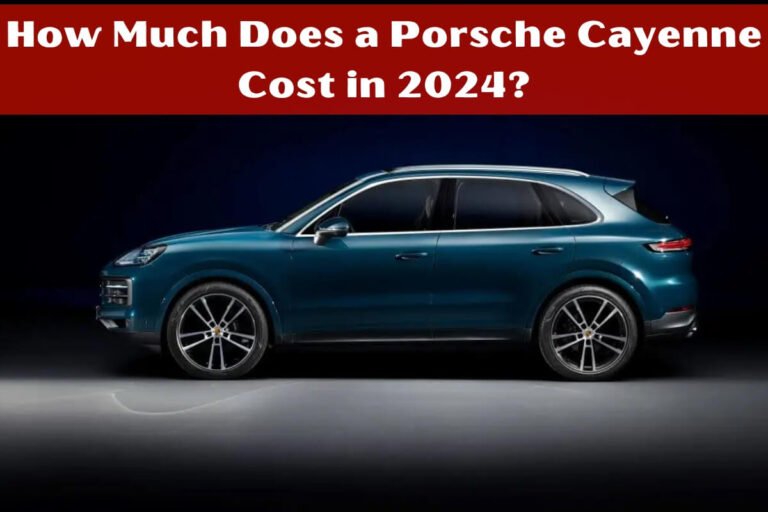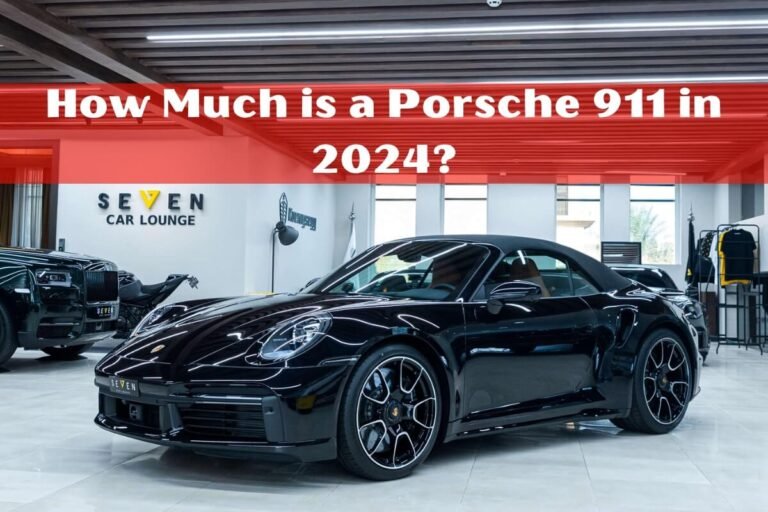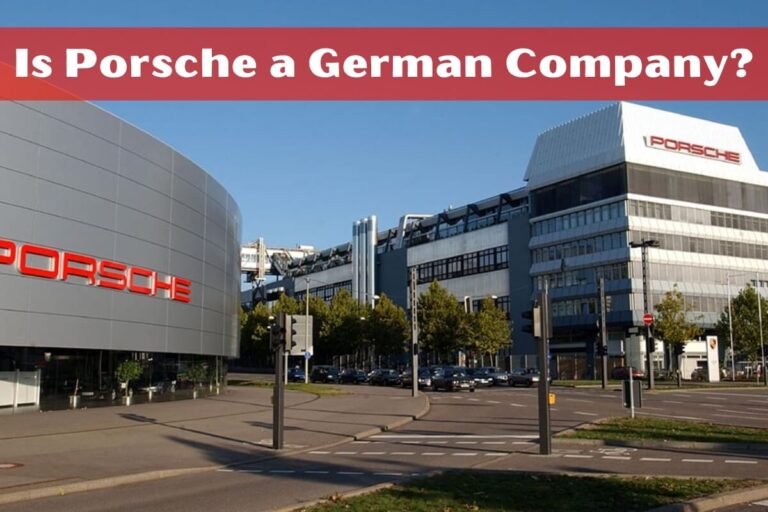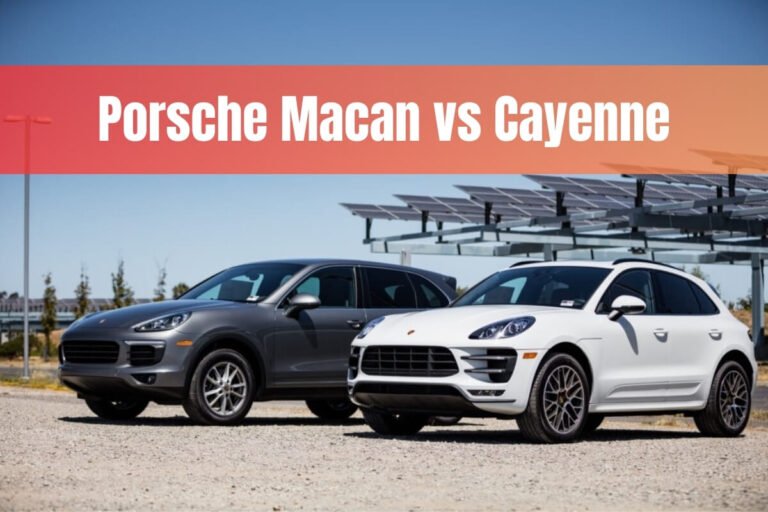Is Porsche an Italian or German Car Brand? The Truth
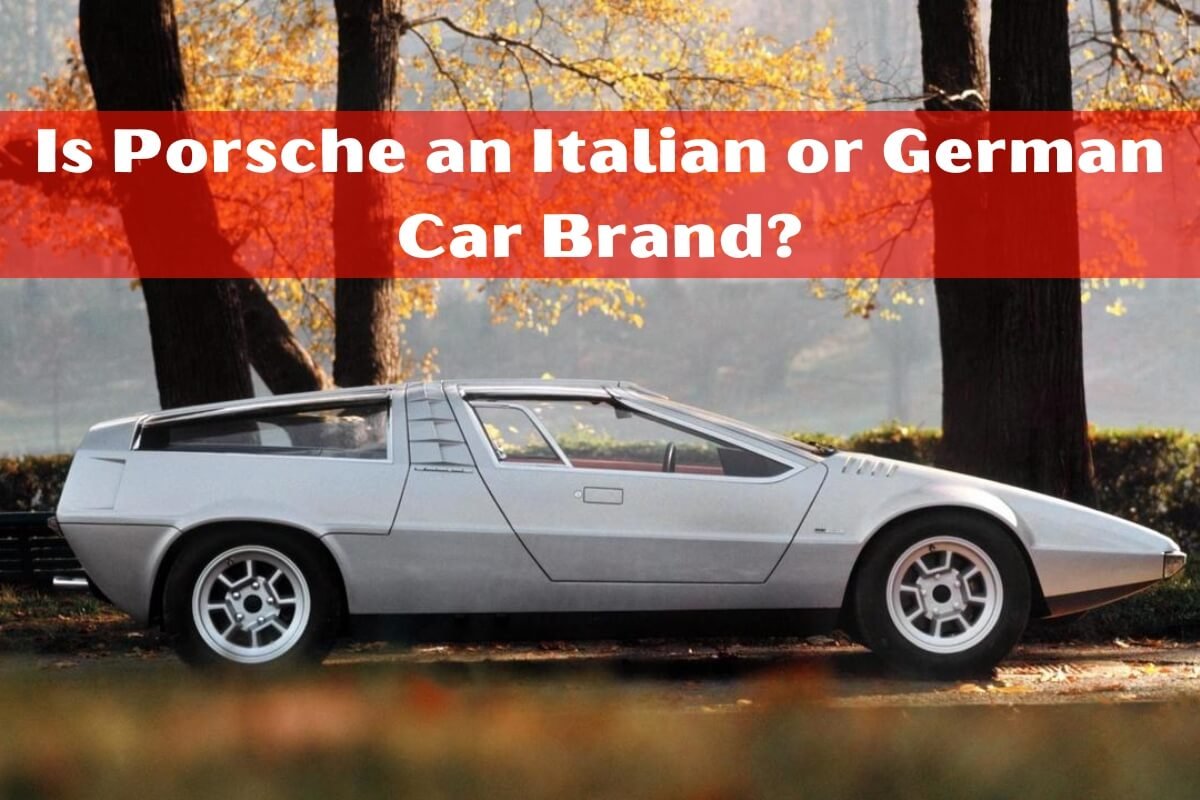
When it comes to iconic automotive brands, few names carry as much prestige and mystique as Porsche. The sleek, curvaceous design of Porsche vehicles evokes thoughts of Italian luxury and style. However, the origins of this legendary marque are purely German. In this comprehensive guide, we’ll definitively answer the question: Is Porsche an Italian car brand or German?
The short answer is that Porsche is a German automotive company through and through. Despite the Italian flair present in Porsche’s designs, the brand was founded in Germany, manufactures all its vehicles in Germany, and its corporate roots and ownership structure are distinctly German.
To fully explore and understand Porsche’s heritage, we’ll dive into the company’s fascinating history, reveal where Porsches are made, explain the meaning behind the brand’s name, highlight some of the iconic German-made Porsche models, and examine the current corporate structure and ownership details. We’ll also explore how Porsche incorporated Italian design influences that gave their cars a unique style blending German engineering with Italian aesthetics.
The History and Origins of Porsche
The Porsche story begins with Ferdinand Porsche, a brilliant German automotive engineer born in 1875. After an apprenticeship at a plumbing firm owned by his father, Porsche went on to work for various coachbuilders and eventually caught the attention of the automotive world with his innovative electric vehicle designs in the late 1800s.
In 1931, Ferdinand Porsche opened an engineering office and consulting firm in Stuttgart, Germany. This marked the official birth of the Porsche company, though it initially did not manufacture vehicles under its own name. One of Porsche’s most significant early projects was consulting for the German government to design an affordable, reliable “people’s car” – the iconic Volkswagen Beetle.
It wasn’t until 1939 that Porsche developed its first automobile model, the Type 64. This futuristic prototype featured an advanced aerodynamic design and mid-mounted engine, foreshadowing the brand’s future emphasis on innovative engineering and sleek styling.
Where Are Porsche Cars Manufactured?
Since the company’s inception in 1931, every single Porsche production vehicle has rolled off assembly lines in Germany. The main Porsche factory and headquarters is located at Porscheplatz 1 in the Stuttgart district of Zuffenhausen. This has been the heart of Porsche manufacturing for over 80 years.
In addition to Zuffenhausen, Porsche operates other key production facilities in Leipzig for manufacturing the Panamera and Macan models, as well as an engine plant in Osnabruck. However, all engineering, design, and executive leadership functions remain centered in the Stuttgart area, the ancestral home of Porsche.
The Pronunciation and Meaning of ‘Porsche’
One aspect that often sows confusion is the pronunciation of the brand’s name – is it an Italian word or German? The answer lies in the name’s German origins. Founded by Ferdinand Porsche, the name is simply the German spelling and pronunciation of his surname.
In German, Porsche is properly pronounced “Por-shuh”, with the ‘e’ representing more of an ‘uh’ sound rather than an elongated ‘ee’. The meaning of the word Porsche itself comes from the German term for “offerings” or “supply”, and it’s a fairly common first name for Germans of both genders.
So while the Porsche name may sound vaguely Italian to English speakers’ ears, its roots are definitively German in both spelling and etymology. Proper pronunciation is a hallmark of respect for the brand’s heritage.
Iconic Porsche Models and Their German Heritage
When car enthusiasts think of Porsche, their minds instantly jump to the legendary 911 model. This rear-engined sports car has been in continuous production since its debut in 1963 and embodies the ideal balance of precise German engineering with emotional Italian design flair.
The 911 wasn’t Porsche’s first model – that would be the 356, launched in 1948. But it was the 911, originally designated internally as the 901, that solidified Porsche’s identity. Its uniquely sculpted form with the sloping rear haunches quickly became an icon of automotive styling.
Beyond the 911, Porsche’s German heritage shines through its entire lineup of sports cars, sedans, and SUVs. The mid-engine Boxster, Cayman coupe, Panamera sedan, and Cayenne SUV all showcase that distinct Porsche DNA of sporting performance and impeccable road manners derived from decades of engineering excellence at their Zuffenhausen home.
Equally crucial to Porsche’s identity is a legendary history in motorsports, predominately in grueling endurance road races. Porsche’s first overall win at the 24 Hours of Le Mans came in 1970 with the iconic 917 prototype racer. Subsequent decades saw innumerable overall and class wins at Le Mans, Daytona, and the FIA World Endurance Championship powered by pioneering German Porsche engineering in competition-tailored versions of road models like the famed 911 GT racers.
Is Porsche Still a German Company Today?
Given Porsche’s strong German roots, it’s natural to question if the brand is still German-owned in the modern era. The answer is a qualified yes – while there was a period where Porsche was controlled by German automotive giant Volkswagen, it has recently re-established itself as an independent, German-based company.
In the early 2000s, the Porsche family descendants of Ferdinand Porsche began acquiring shares in Volkswagen AG through their holding company, Porsche Automobil Holding SE. This culminated in an outright takeover attempt of Volkswagen in 2008. However, the financial crisis caused the debt-financed deal to collapse.
The reversal of fortunes led to Volkswagen AG ultimately acquiring a 49.9% stake in Porsche’s automotive operations in 2012, effectively making the sports car brand a subsidiary of the larger German automaker. This allowed Porsche to share resources and technology with other VW Group brands like Audi and Lamborghini.
After over a decade under Volkswagen’s umbrella, Porsche took the bold step of separating and becoming an independently operated company once again in 2022. An initial public offering brought outside investors on board, with the Porsche SE holding company retaining a controlling 25% voting stake, while Volkswagen AG indirectly owns the remaining 75% of shares.
While Germans and the iconic Porsche/Piech families remain firmly in control, Porsche is now functionally and operationally independent from its former parent Volkswagen AG. The Stuttgart firm is charting its own course into an electrified, high-performance future – powered by its German roots and global aspirations.
Porsche’s Influence on Italian Car Design
So if Porsche is definitively a German company, where did the brand’s signature Italian design flair come from? The answer lies in the simmering influence of Italian coachbuilding and car styling philosophies on Porsche’s unique visual identity.
From the very beginning, Ferdinand Porsche worked closely with prestigious Italian firms and individuals. The Type 64 prototype’s sleek bodywork was engineered by Erwin Komenda, an Austrian designer heavily inspired by the aerodynamic principles of Italy’s Cisitalia and other avant-garde brands of the time.
This synergy between German technical engineering and Italian sculpting of forms laid the foundation for every subsequent Porsche production model. The gracefully curved fenders, low and wide stance, and sensual surface detailing could have been lifted straight from the books of legendary Italian coachbuilders at Touring, Pininfarina, or Bertone.
Yet Porsche’s designs always retained a rationality and practicality lacking in some Italian flights of fancy. The styling enhanced performance and accentuated the company’s motorsports-driven ethos instead of purely aesthetic aims. This potent intersection of Italian artistry with German precision gave Porsche models a iconic look coveted by enthusiasts worldwide.
Specific details link Porsche to its Italian inspirations as well. The sharknose front end of the vaunted 935 race car pays homage to the mighty Ferrari 512 Berlinetta Boxer. Elements of the angular 1980s 924/944 models seem drawn from the Giugiaro-designed Italdesign megahits like the VW Scirocco and DeLorean. Yet these thoughtful borrowings only accentuated Porsche’s unique identity rather than distracting from it.
Ultimately, while Porsche remains proudly German at its core, the company founder’s admiration for Italian design sparked an indelible aesthetic influence still burning bright to this day. Each new model blends the marque’s rich heritage with forward-looking inspiration, creating an effortlessly cool melding of cultures that resonates around the world. True automotive art emerges at the intersection of Porsche’s Germanic precision engineering and the sculpted, evocative forms inspired by Italy’s coachbuilding titans.
This unique duality is a core tenet of the Porsche brand identity. It’s what allows a relatively compact sportscar like the 911 to achieve a remarkable balance of razor-sharp performance and jaw-dropping curb appeal. German vorsprung durch technik fused with Italian design language yields automotive artwork capable of stopping people in their tracks.
The Porsche styling studios continually reimagine this potent formula across the lineup. The sleek Taycan EV ushers in an electrified era while staying true to the brand’s fluid forms. Even the chunky Cayenne SUV exudes muscular aggression within an artfully taut package. Motorsports icons like the unforgettable 917 longtail prototype represent the idea made metal – a manifestation of Porsche’s techno-passionate ethos rendered in shapely Italian-influenced lines.
In many ways, Porsche has achieved the perfect amalgamation of nations. German industrial might weds Italian sculptural elegance to produce some of the most achingly beautiful, technologically advanced, and uncompromisingly high-performance vehicles in history. While rivals aspire to topple Porsche through outright speed, sheer luxury, or econobox affordability, few can match the marque’s unique cross-cultural appeal synthesizing la dolce vita with teutonic über-engineering.
As Porsche charges forward, pioneering electrification, autonomous driving aids, and ambitious new segments, that core Italian-inspired, German-executed brand identity will remain sacrosanct. Each new offering will extend the noble lineage – sporting machines born of brilliant minds and crafted by skilled hands to stir the soul through sheer automotive brilliance. Unmistakably Porsche, distinctly sui generis, transcending boundaries and sparking passions across cultures.
In Conclusion
Is Porsche an Italian car brand or German? The answer is definitive – Porsche’s origins, manufacturing facilities, corporate headquarters and ownership structure unequivocally cement it as a German automotive marque in modern times. However, the indelible influence of Italian design philosophies and coach-building artistry permeates nearly every Porsche model from the sensual 356 to the futuristic Taycan.
This synergy between Teutonic engineering excellence and Mediterranean sculpting of forms is a core foundation of Porsche’s brand identity and appeal. It’s what elevates Stuttgart’s sports cars from mere high-performance machines into rolling automotive artwork adored by enthusiasts globally. As Porsche continues pioneering new innovations and segments, that unique spirit synthesizing German precision with Italian flair will remain a guiding light.
So while not Italian, Porsche has transcended boundaries to create its own distinctive cross-cultural space. One where rationality meets emotionality, where performance coexists with impeccable style, and where a relentless spirit of competition fuels staggering technological achievement. In many ways, Porsche is its own nation – the heart of uncompromising passion for “the sport of driving” personified.

